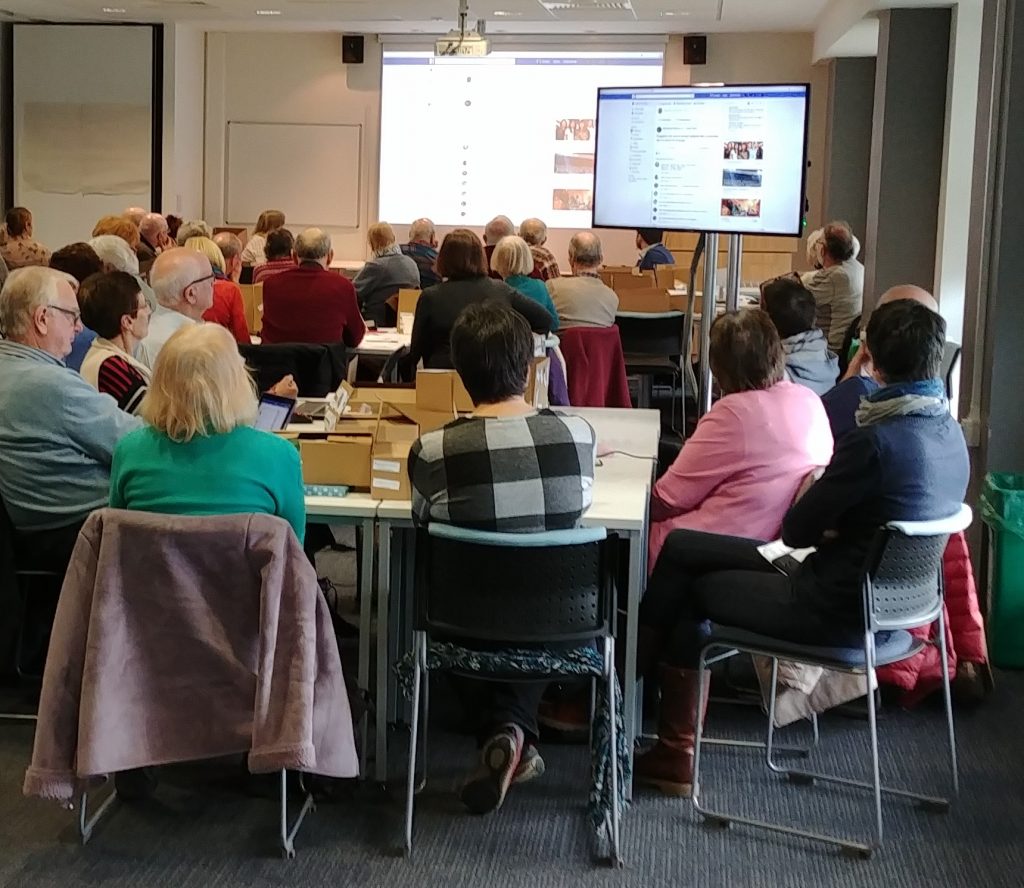Supporting approachable, available, and knowledgeable peers for better cybersecurity hygiene
Project Lead

Dr. James Nicholson
Lecturer, Computer and Information Sciences, Northumbria University
Contact: james.nicholson@northumbria.ac.uk
Key Partners
University of the Third Age (U3A); The Old Low Light
Challenge
Older adults are typically targeted by internet scammers due to their lower digital literacy and their limited computer support network. This project worked with fourteen older adults to train them to share reliable cybersecurity information with their peers that can prevent opportunistic cyber-attacks.
Training CyberGuardians to work in the community
We trained fourteen CyberGuardians who went on to disseminate good quality cybersecurity information to approximately 820 people through peer-to-peer learning over the course of nine months. The CyberGuardians discussed cybersecurity advice and information with approximately 470 unique citizens, who in turn discussed this advice and information with a further 350 people.
Learning about CyberSecurity
The CyberGuardians received hands-on training looking at different aspects of cybersecurity including live demonstrations of password hacking, and a phishing test. The topics focused on issues the group identified, such as password management, scam detection and protective software.
Moving safely online
When COVID-19 hit, the CyberGuardians moved online and helped many older citizens to stay safe during the COVID-19 phishing increase, and on using Zoom securely so they could stay in touch with family and friends.
Outcomes
By sharing their experiences openly with their peers, the CyberGuardians were able to help cybersecurity chat become more normalised within these communities.
Informal opportunistic advice was common as a way of sharing cybersecurity best practice into the community – both young and old. While cybersecurity awareness does not guarantee protection from cyber attacks, many of the citizens improved their password and phishing behaviours and there was evidence of open communications between citizens and the CyberGuardians.
We also observed instances where citizens successfully identified and avoided scams. Being open about scams and security means that citizens have peers who they can turn to for help if needed, but perhaps more importantly they can be aware of potential threats that they wouldn’t be otherwise.
The CyberGuardians also appeared on BBC Look North.
Future Directions
More work is needed to understand how to support the CyberGuardians in an online context. How can we recreate informal and relaxed environments online where the CyberGuardians can share their wisdom?
The project will be looking into the best ways of expanding the scheme to other older demographics, such as older adults who may not potentially have great social connections.
It will also look at extending the scheme to other age groups such as younger adults although more research will be needed to understand the social context and how technology can be used to facilitate the spread of good cybersecurity information in these demographics.
Papers
Training and Embedding Cybersecurity Guardians in Older Communities. CHI ’21: Proceedings of the 2021 CHI Conference.
CyberGuardians: Improving Community Cyber Resilience Through Embedded Peer-to-Peer Support. DIS’ 20 Companion: Companion Publication of the 2020 ACM Designing Interactive Systems Conference.
You find out more about the project on their website here.

